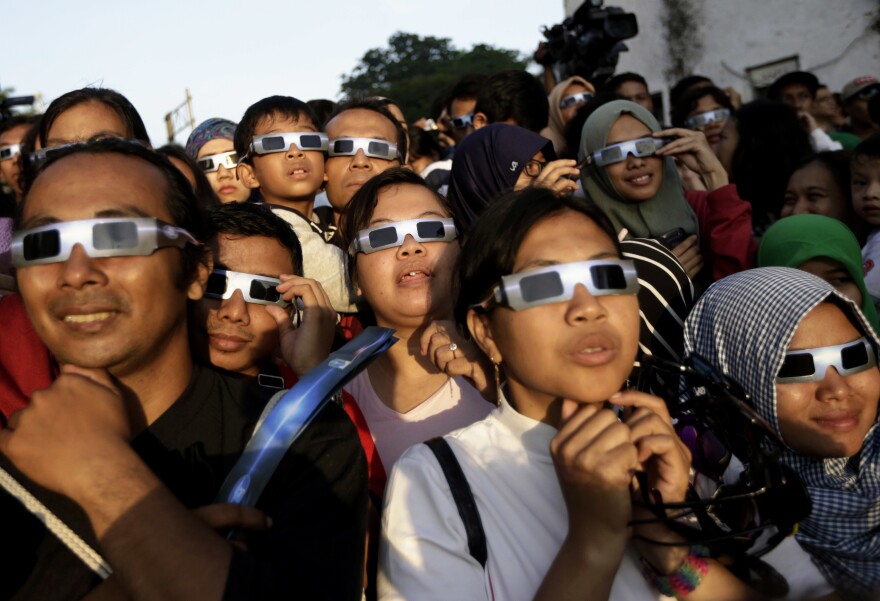When there is a solar eclipse, eye doctors do a lot to warn people about the dangers of looking at the sun without proper eye protection.
And sometimes, people don’t hear or heed the warnings.
In 1999, a solar eclipse moved across the United Kingdom. In the city of East Sussex, which has a population of about 500,000, some 20 people showed up at the eye doctor the next day with serious vision problems.
And when you consider the 4 million or so people living in western Washington?
“We could be seeing hundreds of people coming in with solar retinopathy,” said Dr. Russ Van Gelder, professor of ophthalmology at the University of Washington Medicine Eye Institute. “Especially in Seattle where we’re out of the path of totality, it is never safe to look directly at the sun and you can permanently lose your vision.”
Solar retinopathy is what happens when the sun burns your eyes in the same way a magnifying glass can light a leaf on fire.
Van Gelder says his clinic at UW is treating a couple people for vision problems they acquired while looking at the sun – one from a man who looked at an eclipse when he was 9, some 71 years ago.
Special glasses allow you to observe the sun during the eclipse. It’s important to remember that these are not sunglasses, but specially rated lenses. Look for the number ISO 12312-2 somewhere on the glasses or packaging.
There have been reports of glasses on the market claiming to offer solar protection and don’t, which could actually cause great damage to your eyes. If you have doubts, this list can help you figure out which glasses are legitimate.
Cameras could also pose a problem.
The sun will do to camera sensors what it does to eyeballs – burn them. If you’re shooting a picture of the eclipse with a cell phone, tape the film from eclipse glasses over the lens, and take care not to look directly at the sun while aiming your camera.
And Van Gelder says you should never look through telephoto lenses, binoculars and telescopes – even with special eclipse glasses.
“The binoculars will further focus the light another 10 to 100 times, and you can overcome your eclipse glasses,” he said.







